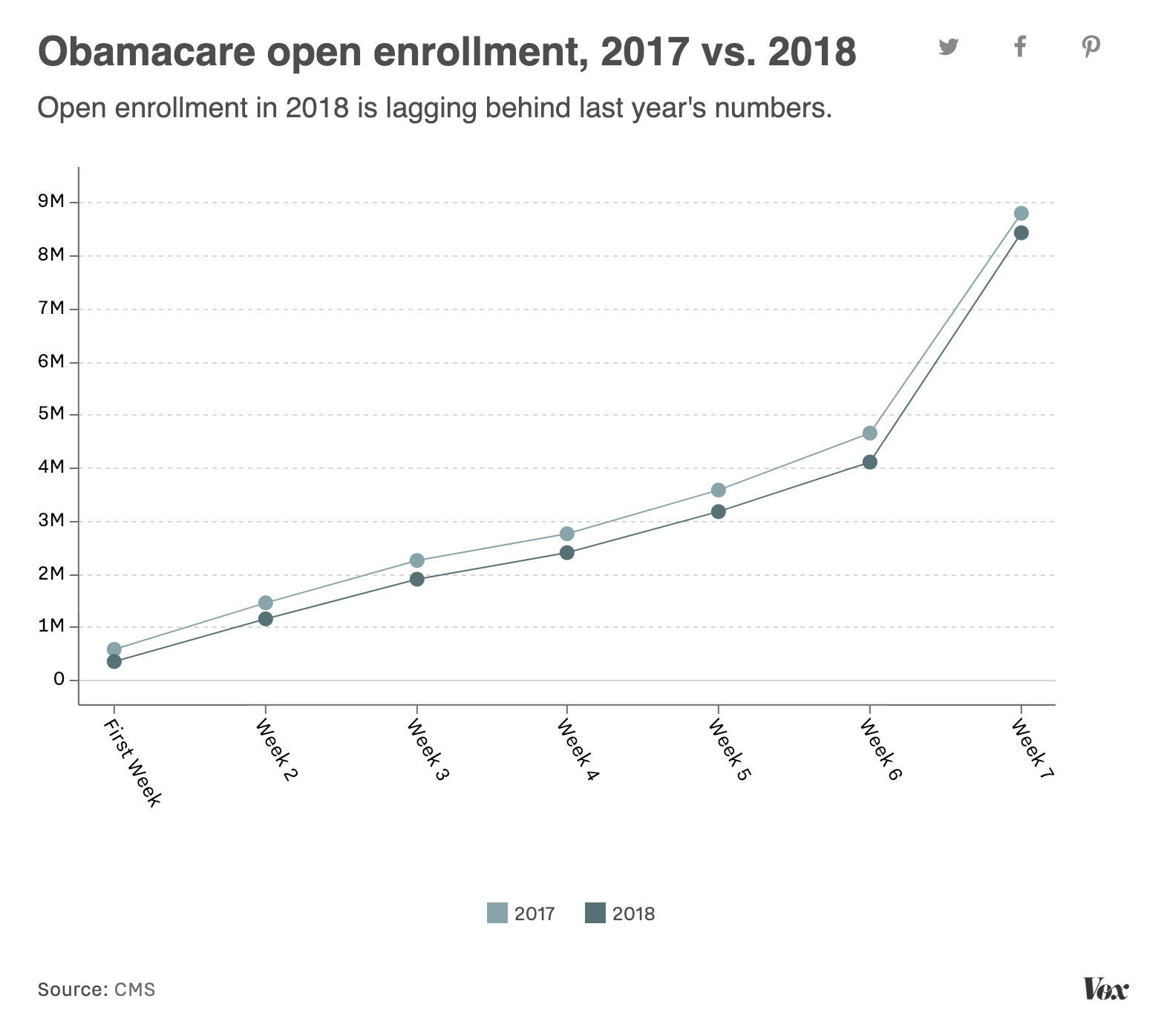Affordable Care Act Enrollment Down Just Four Percent from Last Year; Fight for Patient Protections Continues
01/08/2019
By: Eric Gascho, Vice President, Policy and Government Affairs
The open enrollment period for the Affordable Care Act, also known as the ACA or Obamacare, ended on Dec. 15, 2018. According to Vox, nearly 8.5 million people enrolled in a health plan for next year on the federal insurance marketplace, compared to just over 8.8 million in 2018. Enrollment on HealthCare.gov had been lagging 10-15 percent behind last year’s numbers for most of the enrollment period; raw sign-ups had fallen almost 600,000 behind last year’s pace. But after a strong final few days, they closed about 300,000, or 4 percent, off 2018’s totals.
Theories about why there is a lag in enrollment include repeal of the individual mandate, wider availability of short-term and association health insurance plans, and recent statements and actions by the administration and Congress that may have led the public to believe the ACA no longer exists.
The administration has also cut enrollment outreach programs and advertising for the ACA marketplace. A Kaiser Family Foundation poll released on Nov. 28, 2018, found that a majority of the group most directly affected by open enrollment were unaware of the current open enrollment deadlines, compared to only 31 percent the prior year. In 2013, when advertising budgets were higher, 42 percent of the public said they had heard “a lot” or “some” about the health insurance marketplace.
Vox reports that, “Auto-enrollment could help explain the last-minute spike in sign-ups. This was the first year that the health care law’s markets didn’t see a mass exodus of insurers. In prior years, a lot of people saw their carrier leave the market, so they got a letter telling them their current plan was canceled and they’d need to go shop for a new year. This year, more people can keep the same coverage, and premiums are generally flat from last year. So more people were expected to just automatically re-enroll in the same plan — and those sign-ups aren’t reported until the end of open enrollment.”
More Challenges Ahead
While a modest decline in enrollment despite substantial headwinds is good news for the fate of the ACA, legal challenges continue. The day before open enrollment closed, on Dec. 14, 2018, a Texas judge ruled that the ACA is unconstitutional, siding with a group of 18 Republican state attorneys general and two GOP governors who brought the case. However, the health care law will remain intact while the case is appealed.
NHC Chief Executive Officer Marc Boutin, JD, said, “We are deeply disappointed with the judge’s decision in Texas v. U.S. to overturn the Affordable Care Act (ACA) – as it negatively impacts the millions of Americans with pre-existing conditions. The U.S. Congress didn’t intend to repeal the entirety of the ACA when they repealed the individual mandate. We trust the higher courts will reverse this terrible decision. In the meantime, Congress must work with the patient community to ensure people with pre-existing conditions can purchase meaningful, affordable health insurance. Lives depend on it.”
The ruling is currently being appealed, and the US House of Representatives has joined the legal defense of the ACA. It is likely that the suit will continue to be appealed all the way to the Supreme Court. Most legal experts have expressed great skepticism in the merits of the lawsuit against the ACA.
In 2019, the NHC will aggressively work to keep the patient protections in the ACA to ensure those who need comprehensive coverage can afford it.
